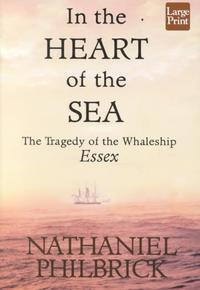 Soon to be a major motion picture starring Chris Hemsworth, Cillian Murphy, Ben Wishaw, and Brendan Gleeson, and directed by Ron Howard.The ordeal of the whaleship Essex was an event as mythic in the nineteenth century as the sinking of the Titanic was in the twentieth. In 1819, the Essex left Nantucket for the South Pacific with twenty crew members aboard. In the middle of the South Pacific the ship was rammed and sunk by an angry sperm whale. The crew drifted for more than ninety days in three tiny whaleboats, succumbing to weather, hunger, disease, and ultimately turning to drastic measures in the fight for survival. Nathaniel Philbrick uses little-known documents-including a long-lost account written by the ship’s cabin boy-and penetrating details about whaling and the Nantucket community to reveal the chilling events surrounding this epic maritime disaster. An intense and mesmerizing listen, In the Heart of the Sea is a monumental work of history forever placing the Essex tragedy in the American historical canon.
Soon to be a major motion picture starring Chris Hemsworth, Cillian Murphy, Ben Wishaw, and Brendan Gleeson, and directed by Ron Howard.The ordeal of the whaleship Essex was an event as mythic in the nineteenth century as the sinking of the Titanic was in the twentieth. In 1819, the Essex left Nantucket for the South Pacific with twenty crew members aboard. In the middle of the South Pacific the ship was rammed and sunk by an angry sperm whale. The crew drifted for more than ninety days in three tiny whaleboats, succumbing to weather, hunger, disease, and ultimately turning to drastic measures in the fight for survival. Nathaniel Philbrick uses little-known documents-including a long-lost account written by the ship’s cabin boy-and penetrating details about whaling and the Nantucket community to reveal the chilling events surrounding this epic maritime disaster. An intense and mesmerizing listen, In the Heart of the Sea is a monumental work of history forever placing the Essex tragedy in the American historical canon.
The Library has a copy of the movie.
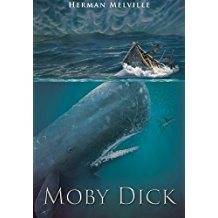 Side read: Moby Dick
Side read: Moby Dick
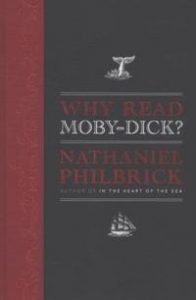
One of the greatest American novels finds its perfect contemporary champion in Why Read Moby-Dick?, Nathaniel Philbrick’s enlightening and entertaining tour through Melville’s classic. As he did in his National Book Award–winning bestseller In the Heart of the Sea, Philbrick brings a sailor’s eye and an adventurer’s passion to unfolding the story behind an epic American journey. He skillfully navigates Melville’s world and illuminates the book’s humor and unforgettable characters—finding the thread that binds Ishmael and Ahab to our own time and, indeed, to all times. An ideal match between author and subject, Why Read Moby-Dick? will start conversations, inspire arguments, and make a powerful case that this classic tale waits to be discovered anew.
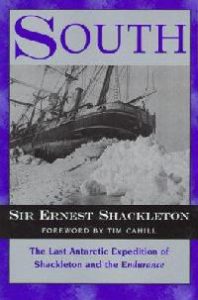 This is one of the most perilous adventure tales ever. Unbelievable – but true. I understand that business schools use it to teach crisis management. Gary
This is one of the most perilous adventure tales ever. Unbelievable – but true. I understand that business schools use it to teach crisis management. Gary
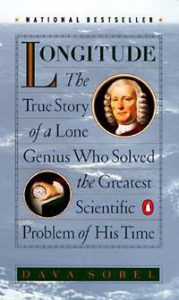 The Essex sailors knew their Latitude but not their Longitude. This is a short, interesting book on the subject. Anyone alive in the eighteenth century would have known that “the longitude problem” was the thorniest scientific dilemma of the day-and had been for centuries. Lacking the ability to measure their longitude, sailors throughout the great ages of exploration had been literally lost at sea as soon as they lost sight of land. Thousands of lives and the increasing fortunes of nations hung on a resolution. One man, John Harrison, in complete opposition to the scientific community, dared to imagine a mechanical solution-a clock that would keep precise time at sea, something no clock had ever been able to do on land. Longitude is the dramatic human story of an epic scientific quest and of Harrison’s forty-year obsession with building his perfect timekeeper, known today as the chronometer. Full of heroism and chicanery, it is also a fascinating brief history of astronomy, navigation, and clockmaking, and opens a new window on our world.
The Essex sailors knew their Latitude but not their Longitude. This is a short, interesting book on the subject. Anyone alive in the eighteenth century would have known that “the longitude problem” was the thorniest scientific dilemma of the day-and had been for centuries. Lacking the ability to measure their longitude, sailors throughout the great ages of exploration had been literally lost at sea as soon as they lost sight of land. Thousands of lives and the increasing fortunes of nations hung on a resolution. One man, John Harrison, in complete opposition to the scientific community, dared to imagine a mechanical solution-a clock that would keep precise time at sea, something no clock had ever been able to do on land. Longitude is the dramatic human story of an epic scientific quest and of Harrison’s forty-year obsession with building his perfect timekeeper, known today as the chronometer. Full of heroism and chicanery, it is also a fascinating brief history of astronomy, navigation, and clockmaking, and opens a new window on our world.
Longitude by Dava Sobel
This is pretty extraordinary. The film was made in 1916 and this was narrated in 1964 by a New Bedford historian who actually sailed on this ship, the Viola. Two parts. By Charles Salman’s
https://www.youtube.com/watch?v=iWA4HDFASAo
